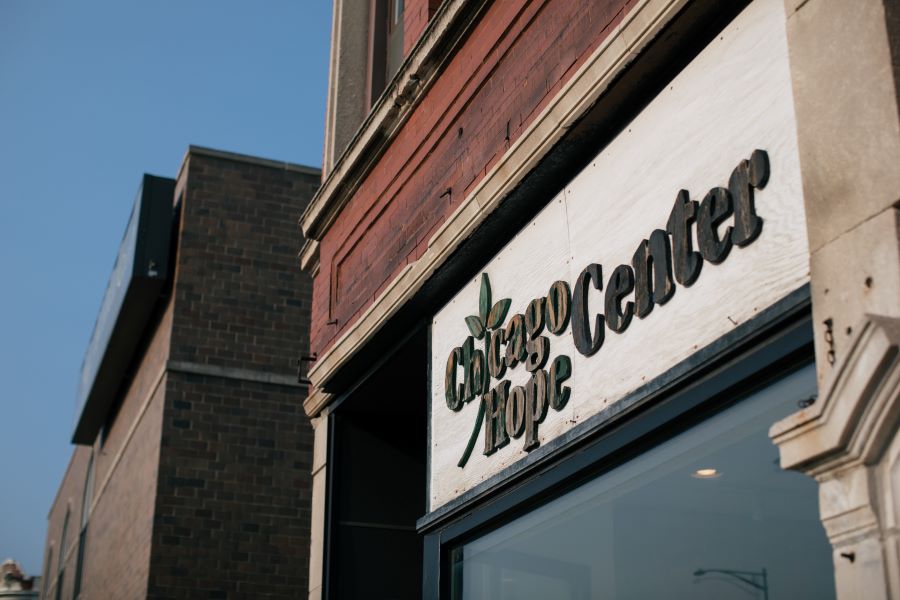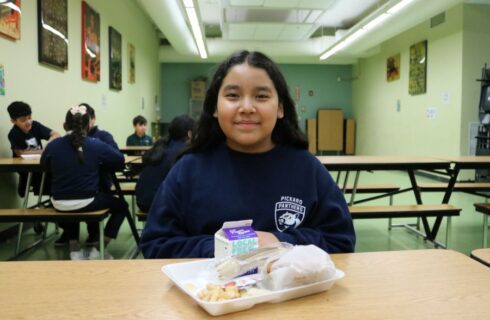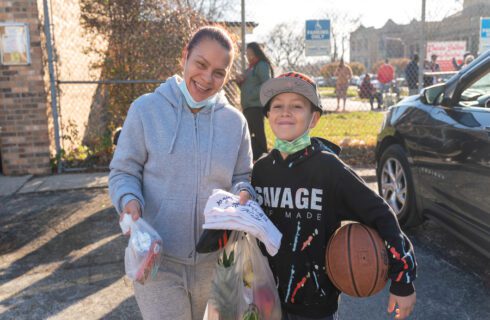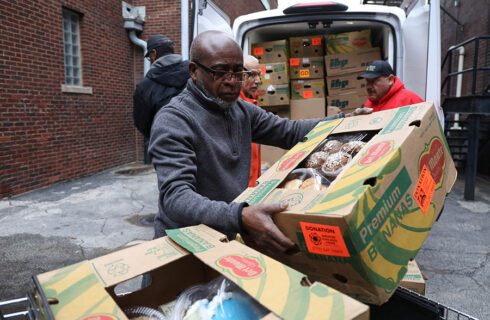“I don’t know what I’d do if this place didn’t exist,” Charlotte Cielocha said while standing in the food pantry she’s visited nearly every Thursday for the past five years.
Cielocha, 62, a third-generation Chicagoan, has lived on the city’s northwest side her entire life. Every Thursday she travels to nearby Logan Square to visit Chicago Hope, a food pantry run by Armitage Baptist Church in partnership with the Food Depository.
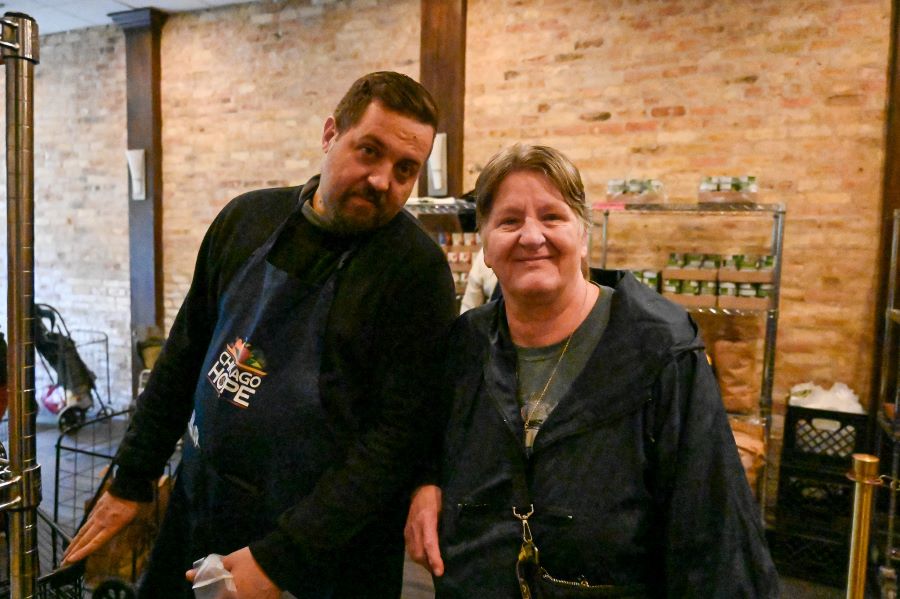
Charlotte Cielocha poses with a Chicago Hope volunteer.
One of the things that keeps Cielocha returning week after week is the care and assistance she receives from the staff. “The people are really nice and helpful here,” she says. “If you don’t have your own cart, they’ll let you use one of theirs and help you take the food to your car. They put it in bags for you and make it easy for us older folks.”
Cielocha is unable to work due to a physical disability, so she and her husband do their best to survive on his income.
“It’s hard right now with inflation and food stamps being cut. Times are getting really bad, not just for us, but for everyone."
"The prices at the grocery store are only getting higher and higher, and I don’t know how people are going to survive it,” she said, adding her appreciation for the food she receives at Chicago Hope. “I’m very thankful for them.”
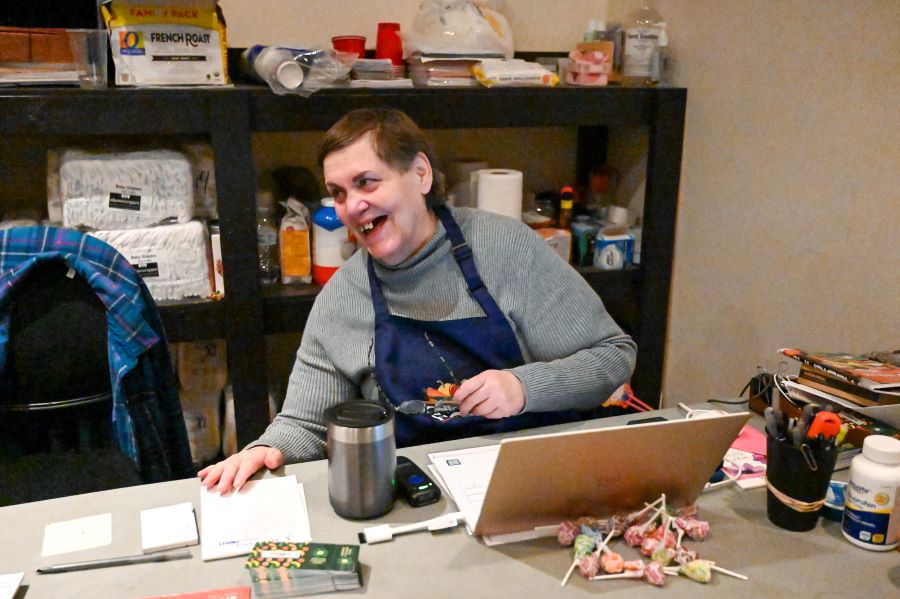
Maggie Jordan works the front desk at Chicago Hope.
“Inflation and rising costs of living have contributed to the growing number of people we see each week,” said pantry coordinator Maggie Jordan. “We used to see mainly single people and older adults. Now we see more families and younger people coming in than ever.”
Jordan, 71, began as a volunteer with Chicago Hope in 2009. Just one year later, when the pantry needed a full-time coordinator, she stepped into the role and has devoted her life to Chicago Hope ever since.
“We get people from all walks of life in this pantry,” Jordan said. “Everybody needs help at some point, and we are a place where anyone can come to get help when they need it.”
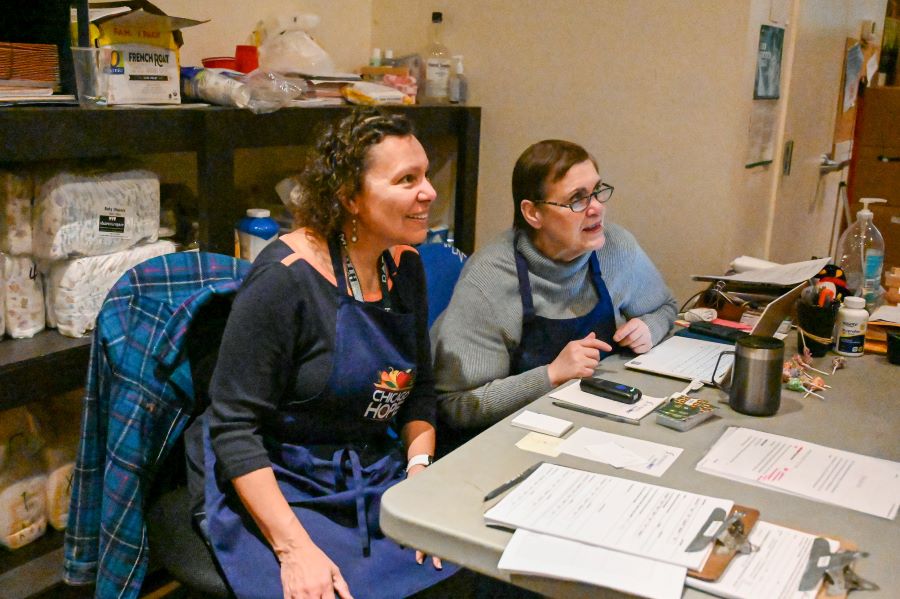
Maggie Jordan and her fellow volunteer check in a neighbor to the pantry.
Jordan knows firsthand what it feels like to experience food insecurity. Shortly before she started volunteering with Chicago Hope, she visited the pantry to get some much-needed food. She was a single mom, struggling to make ends meet. With nowhere else to turn for help, she went to Chicago Hope. “I never forgot how it felt to receive generosity from when I needed it most,” she said.
Today, in partnership with the Food Depository, Chicago Hope serves an average of 180-190 people experiencing food insecurity each week. The number of guests they serve nearly tripled during the pandemic, and it has not gone down since. In 2015, they moved into their current location, which doubled their space to house refrigeration and dry storage, allowing them to increase their capacity. As need grows, they hope to keep expanding in the near future.
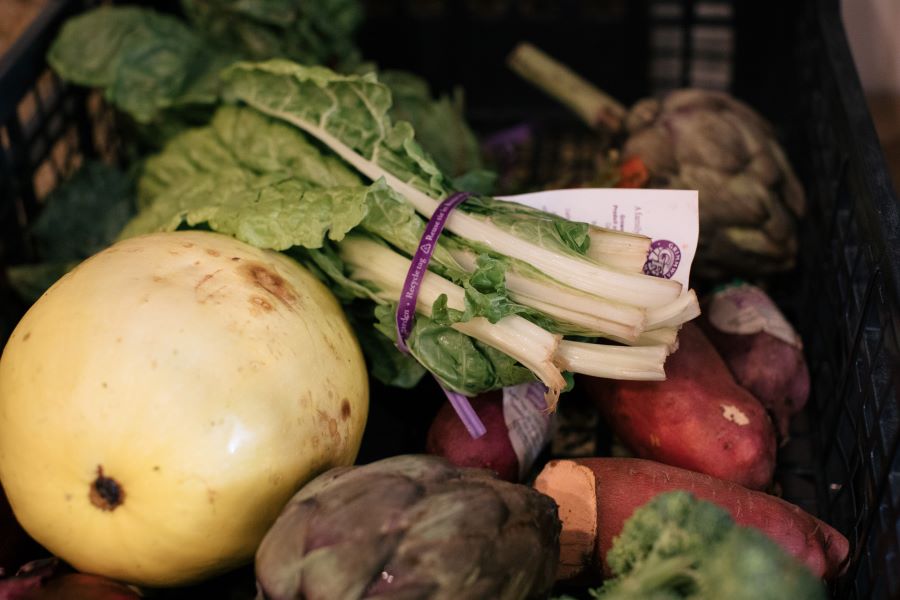
Fresh produce provided by the Food Depository is distributed every week at Chicago Hope.
Jordan knows she can’t end hunger on the North Side by herself. “The Food Depository’s support means everything to us,” she said. “We depend on the resources that they provide to run our pantry. We’re a small pantry; we don’t have corporate sponsors. What we have is hardworking volunteers and the support of the Food Depository. We would not be able to do what we do without them.”
Share This Post

